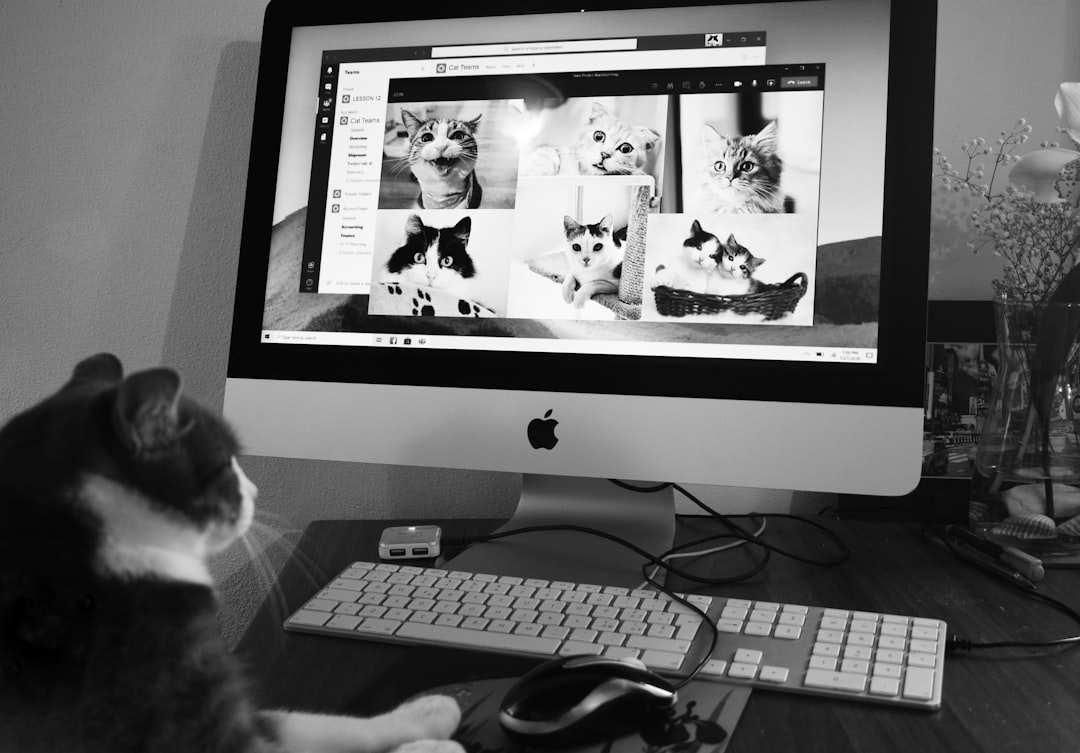Caring for a kitten can be one of the most rewarding experiences for pet owners. However, ensuring your new feline friend thrives requires attention to various aspects of kitten care. From creating a safe environment to understanding their nutritional needs, every detail contributes to their overall happiness and well-being. Regular veterinary visits play a crucial role, as does socializing your kitten with other pets and people. By establishing routines for play, exercise, and grooming, you can lay a strong foundation for a loving and healthy relationship with your new companion.
Creating a Safe and Comfortable Space for Your Kitten
Creating a safe and comfortable space is crucial for effective kitten care. Here are some essential tips to ensure your new feline friend feels secure and happy:
Choose a Warm, Quiet Spot: Select a room away from noise and foot traffic. Kittens prefer cozy and dimly lit areas to rest.
Secure Environment: Remove harmful items such as toxic plants, small objects, or sharp materials that could pose a risk. Consider using baby gates to limit access to certain areas.
Comfortable Bedding: Provide a soft bed or blankets in a sheltered area to help your kitten feel snug and at home.
Safe Toys and Enrichment: Offer a variety of toys to stimulate your kitten’s natural instincts to play and explore. Rotate toys regularly to maintain interest.
Litter Box Station: Designate a comfortable area for the litter box, ensuring it’s accessible, clean, and away from food and water bowls.
By following these tips on creating a safe and comfortable space, you’re laying the foundation for successful kitten care and building a trusting relationship with your new companion.
Understanding Your Kitten’s Nutrition Needs
Proper kitten care begins with understanding your kitten’s unique dietary requirements. Kittens grow rapidly, so they need a balanced diet rich in essential nutrients. Here’s what to consider:
- High Protein: Kittens require more protein than adult cats to support their growth. Look for food with at least 30% protein.
- Fats: Essential fatty acids aid in brain development and energy. Aim for a fat content of 15-20%.
- Vitamins & Minerals: Calcium and phosphorus are crucial for bone development; ensure their food includes these nutrients.
Comparison Table of Nutrition Factors
| Nutrient | Kitten’s Need | Adult Cat Need |
|---|---|---|
| Protein | 30% or more | 26% or more |
| Fat | 15-20% | 9-15% |
| Calcium | 1.2% | 0.5% |
| Phosphorus | 1% | 0.4% |
Choose high-quality commercial kitten food, whether wet or dry, to ensure your kitten receives adequate nutrition. Always consult your veterinarian for personalized advice and remember to adjust portions as your kitten grows. This foundational knowledge is key to successful kitten care!
Importance of Regular Veterinary Check-ups
Regular veterinary check-ups play a vital role in kitten care. By scheduling these appointments, you ensure your kitten receives the necessary medical attention for a healthy start. Here’s why you shouldn’t skip them:
Preventive Care: Early detection of health issues can prevent more serious problems down the line. Routine exams allow vets to monitor your kitten’s growth and examine vital signs.
Vaccinations: Kittens require vaccinations to protect against common diseases. The vet can provide a vaccination schedule tailored to your kitten’s needs.
Parasite Control: Regular check-ups include assessments for intestinal parasites and fleas. Keeping your kitten parasite-free is crucial for their overall health.
Nutrition Guidance: A vet can help devise a proper diet plan based on your kitten’s age, weight, and breed, which is essential for optimal growth.
Socialization Advice: Vets can offer tips on behavioral issues and socialization, critical aspects of kitten care.
In summary, prioritizing regular veterinary visits is essential for your kitten’s well-being and longevity. Start this healthy habit early for a happy and thriving feline!
Socializing Your Kitten with People and Other Pets
Socialization is a vital aspect of kitten care. Early exposure to various people and pets helps your kitten develop confidence and reduces the chances of fear-based behaviors later in life. Here are some key points to consider:
Start Early: Aim to socialize your kitten between 2 to 9 weeks of age, as this is their critical learning period.
Introduce Gradually:
- People: Begin with calm, gentle individuals and allow your kitten to approach when comfortable.
- Other Pets: Use a controlled environment to introduce your kitten to existing pets slowly. Supervise interactions to ensure safety.
Positive Reinforcement: Use treats and praise to create positive associations with new experiences and interactions.
| Socialization Aspect | Tips |
|---|---|
| With People | Encourage gentle handling; avoid overwhelming environments |
| With Other Pets | Keep introductions short; always monitor behavior |
- Varied Experiences: Expose your kitten to different sounds, sights, and scents, which enhances their adaptability and confidence.
By focusing on effective socialization as part of your kitten care routine, you help foster a well-adjusted, friendly feline companion.
Establishing a Routine for Play and Exercise
Establishing a routine for play and exercise is crucial for your kitten’s overall well-being. Just like humans, kittens thrive on structure, and a consistent routine fosters happiness and health. Here are some essential tips for effective kitten care in this area:
Set a Schedule: Dedicate specific times daily for play sessions. Aim for at least 20-30 minutes of interactive play to burn off excess energy.
Variety of Toys: Rotate different toys to keep your kitten engaged. Consider:
- Wand toys: Encourage jumping and pouncing.
- Laser pointers: Stimulate chasing instincts.
- Balls and soft toys: Perfect for batting around.
Structured Playtime: Use a combination of solo activities and interactions. This includes:
- Puzzle feeders: Enhance mental stimulation while exercising.
- Cat towers: Encourage climbing and exploration.
Monitor Behavior: Keep an eye on your kitten’s activity levels. Signs of boredom or excessive rest can indicate the need for more engagement.
By incorporating these elements into your kitten care routine, you’ll lay the foundation for a happy, active feline companion!
Litter Box Training Essentials
Effective kitten care includes teaching your furry friend proper litter box habits early on. Here are essential tips to ensure successful litter box training:
- Choose the Right Box: Select a litter box that is warm, cozy, and low enough for your kitten to enter easily.
- Use Suitable Litter: Opt for unscented and clumping litter, as it tends to be easier for kittens to use and more appealing.
- Location Matters: Place the litter box in a quiet, accessible area, away from food and water bowls, ensuring your kitten feels safe while using it.
- Encourage Exploration: After meals and playtime, gently place your kitten in the box to establish the routine.
- Be Patient and Positive: If accidents happen, avoid harsh reprimands. Instead, clean up promptly and encourage your kitten when they use the box correctly.
By following these tips, you will enhance your kitten care efforts and foster a positive litter box experience for your new companion. As a result, both you and your kitten can enjoy a clean and happy home!
Recognizing Signs of Illness in Kittens
Proper kitten care includes being vigilant about your kitten’s health. Recognizing the signs of illness early can make a significant difference in their recovery. Here are key indicators to watch for:
- Changes in Appetite: A sudden decrease or increase in food intake may indicate health issues.
- Lethargy: If your kitten seems unusually tired or disinterested in play, it may be time to consult a vet.
- Vomiting or Diarrhea: These can be common but concerning signs. Monitor the frequency and severity.
- Coughing or Sneezing: Persistent respiratory issues could signal a more serious problem.
- Changes in Behavior: Uncharacteristic aggression or withdrawal can indicate discomfort or illness.
- Weight Loss or Poor Grooming: Both suggest your kitten may not be feeling well.
Comparison of Common Symptoms
| Symptom | Possible Illness |
|---|---|
| Loss of appetite | Digestive issues, infections |
| Lethargy | Anemia, pain, infections |
| Vomiting | Parasites, dietary indiscretion |
| Coughing/Sneezing | Respiratory infections |
By familiarizing yourself with these signs, you can enhance your kitten care routine, ensuring your furry friend remains healthy and happy. Regular check-ups with your veterinarian also play a crucial role in early detection.
Grooming Tips for a Healthy Coat
Proper grooming is essential in kitten care, as it keeps your feline’s coat healthy and beautiful. Here are some effective grooming tips:
Brush Regularly: Use a soft-bristled brush or comb suited to your kitten’s coat type to remove dirt and tangles.
- Short-haired kittens may require less frequent brushing (once a week).
- Long-haired breeds need daily grooming to prevent mats and knots.
Bathing: Kittens typically do not need regular baths unless they get into something messy. If necessary:
- Use lukewarm water and kitten-specific shampoo.
- Rinse thoroughly to avoid skin irritation.
Nail Trimming: Regularly trim your kitten’s nails to prevent overgrowth and scratching. Aim for every 2-3 weeks.
Ear Cleaning: Check your kitten’s ears for dirt and wax. Use a gentle vet-recommended solution and cotton ball.
Healthy Diet: A balanced diet promotes a shiny coat. Ensure your kitten’s food is rich in omega fatty acids for optimal coat health.
In summary, a proper grooming routine is vital in your kitten care regimen. By following these tips, you can help maintain a healthy and vibrant coat for your furry friend.
Providing Mental Stimulation and Enrichment
Mental stimulation is essential for your kitten’s overall well-being and development. Proper kitten care includes engaging your furry friend with various activities that stimulate their mind and encourage natural behaviors. Here are some effective strategies:
Interactive Toys: Choose toys that challenge your kitten’s problem-solving skills. Examples include:
- Puzzle feeders
- Crinkle balls
- Feather wands
Playtime Routine: Establish a daily playtime schedule. Aim for at least 15-30 minutes of interactive play each day to strengthen your bond and keep your kitten engaged.
Environmental Enrichment: Create an engaging space by:
- Adding scratching posts and climbing structures
- Rotating toys to keep their environment fresh
- Using safe household items (like boxes and paper bags) for exploration
Training Sessions: Incorporate short training sessions using positive reinforcement. Teach simple commands or tricks to enhance focus and mental agility.
In summary, investing time in providing mental stimulation and enrichment not only makes kitten care enjoyable but also fosters a happy and well-adjusted feline companion.
Building a Strong Bond with Your Kitten
Establishing a strong bond with your kitten is crucial for their emotional well-being and your relationship. Here are some essential tips for fostering that connection through effective kitten care:
- Quality Time: Spend dedicated time each day playing with your kitten. Engaging in interactive play encourages trust and affection.
- Gentle Handling: Always handle your kitten gently. This promotes comfort and helps them feel secure in your presence.
- Consistent Routine: Establish a consistent routine, including feeding times and play. Kittens thrive on predictability, which can reduce anxiety.
- Positive Reinforcement: Use treats and praise to reward good behavior. This creates a positive association with you and encourages bonding.
- Calm Environment: Create a tranquil space free from loud noises and sudden movements, allowing your kitten to explore and feel safe.
By implementing these strategies, you enhance your kitten’s welfare and cultivate a lasting companionship. Prioritize kitten care, and you’ll enjoy a loving and trusting relationship with your furry friend.



